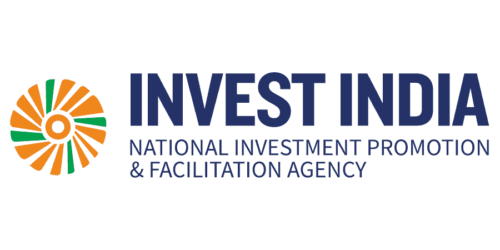The connection between South Korea and India has grown over time because they share common interests in history, culture, and economy. Both countries enjoy the Hallyu wave, including K-dramas and K-pop music. They also appreciate Korean cuisine, such as kimchi and ramen. This shared enthusiasm for Korean culture has captured the attention of people in both countries, especially the younger generation.
Beyond culture, South Korea and India have other things in common and collaborate in various ways. India’s growing economy and South Korea’s technological expertise create strong ties for business engagement, offering many opportunities for mutual growth.
This blog will delve into the longstanding strategic partnership between the two nations, which dates back centuries. It began with the marriage of an Ayoddha princess to a Korean prince and the spread of Buddhism from India to South Korea. Today, the synergy between the two countries is marked by new investments and business relationships, such as the New Southern Policy (NSP) established in 2017 and the expansion of Korean companies into Indian states.
Overview of South Korea and India relations
India and the Republic of Korea (ROK) enjoy close ties that originate from shared interests in entertainment, fashion, and food. Notably, popular K-pop acts like BTS and prominent web series like Squid Game have been well-known overseas and helped create a global craze. India, with a population of 1.42 billion, is the country with the greatest youth demographic in the world, demonstrating how enthusiastically it has adopted South Korean culture.

There is a strong cultural connection between South Korean trends and traits and Indian society. The availability of K-cosmetics and beauty brands such as BECCOS and INNISFREE in numerous Indian markets is indicative of the robust interpersonal relations that exist between the two nations. To further cement the cultural interchange between India and Korea, the well-known Korean martial art of taekwondo has become popular among the Indian population as a recreational and fitness program.
India and South Korea have a mutually beneficial partnership. An Indian cultural institution has been established in South Korea where the nation experiences Indian festivals, art, music, and customs. Koreans take part in Hindi, and Bollywood dance, movies, yoga, and Gandhi Jayanti celebrations with great enthusiasm. Several Indian musicians and artists recently gave classical music and dance performances at the Sarang festival.
India and South Korea have close business relations. Since 1973, they have maintained diplomatic ties, and in 2023, they will commemorate their 50th anniversary. Their collaboration on the security strategy for the Indo-Pacific area has improved their bilateral relations. To promote economic cooperation, they also ratified the Comprehensive Economic Partnership Agreement (CEPA) in 2009.
Economic ties between South Korea and India
The economic bonds between South Korea and India have deepened notably over the past few decades. Both nations have acknowledged the potential for establishing mutually advantageous collaboration and have actively participated in boosting their economic ties. Here are some pivotal aspects of their economic partnership.
Trade relations between South Korea and India have witnessed significant expansion over time. Both nations have engaged in the exchange of diverse goods and services. South Korea has been exporting automobiles, electronic goods, machinery, and steel products to India, whereas India has been exporting textiles, chemicals, pharmaceuticals, and raw materials to South Korea.
Furthermore, South Korean enterprises have progressively invested in India across a spectrum of sectors, including automobiles, electronics, infrastructure, and manufacturing. Prominent South Korean conglomerates such as Hyundai, SK Hynix, and LG have made substantial investments in India. In 2019, Kia Motors, a South Korean automotive company, ventured into the Indian market with its “Made for India” SUV, the Kia Seltos, captivating the India population with its tech-savvy features and cutting-edge design.
Moreover, the electronics giants from South Korea such as Samsung Electronics, Xiaomi, Oppo, and Vivo have emerged as dominant players in the Indian market. Samsung, renowned as one of the globe’s largest semiconductor manufacturers, has served as a significant supplier of memory chips, encompassing DRAM and NAND flash memory.
In a similar pattern, Indian businesses have invested in South Korea, particularly in the IT and drug industries. Trade between India and South Korea has been increasing over time, and by 2030, it is predicted to reach over USD 50 billion. In addition to trade and investments, both nations have signed MOUs and formed agreements to strengthen their economic ties. These agreements protect investments, prevent double taxation, and promote economic cooperation, among other things.
South Korea is well known for its innovation and unique technologies. India hopes to gain from South Korea’s expertise in IT, electronics, and car production. Both countries actively participate in regional economic forums such as the ASEAN Regional Forum (ARF) and the East Asia Summit (EAS), working together on regional economic initiatives to promote peace, stability, and economic development in the Asia-Pacific region.
Besides economic ties, South Korea and India have established strategic partnerships in defense, security, and cultural exchange. These partnerships have strengthened the overall relationship between the two countries.
Opportunities for South Korean businesses in India

There have been recent significant collaborations between the two countries. The “New Southern Policy” aimed at enhancing business relations with ASEAN (Association of Southeast Asian Nations) member nations, India, and ROK, was initiated by the former president of the ROK in 2017. Further, in December 2022, the Indo-Pacific policy of “Strategy for a Free, Peaceful, and Prosperous Indo-Pacific Region” was announced by current President Yoon Suk Yeol, to advance unique strategic cooperation with India.
These collaborations have markedly expanded the spectrum of opportunities for South Korean companies to establish a foothold in the Indian market. Below are several key sectors where South Korean businesses can explore promising prospects in India:
- Automobiles and automotive components: India boasts one of the world’s largest automotive markets, presenting lucrative opportunities for South Korean automakers and component manufacturers to invest and establish production facilities. Notably, companies such as POSCO have already made substantial investments in India and achieved remarkable success.
- Electronics and technology: With the rising demand for consumer electronics and technological products in India, South Korean companies specializing in electronics, smartphones, home appliances, and semiconductor manufacturing can actively explore collaborative ventures, investments, and market expansion strategies.
- Infrastructure development: India’s infrastructure sector is undergoing substantial growth, enthused by projects spanning transportation, energy, urban development, and the development of smart cities. South Korean construction and engineering firms are well-positioned to participate in these initiatives through strategic collaborations, joint ventures, or competitive bidding for contracts.
- Renewable energy: India wants more clean energy like solar and wind power. South Korean companies that work with these technologies can invest in projects, sell equipment, and share their knowledge.
- Healthcare and pharmaceuticals: India needs better healthcare and medicines. South Korean companies in pharmaceuticals, medical devices, biotech, and healthcare services can team up, invest, and find ways to enter the Indian market.
- Information technology and software services: India is a global hub for information technology and software services. South Korean IT companies can leverage India’s skilled workforce, innovation ecosystem, and growing digital market to establish development centers, explore collaborations, and offer IT solutions and services.
- Consumer goods and retail: India’s expanding middle class offers promising prospects for South Korean consumer goods and retail businesses. Sectors like fashion, cosmetics, food and beverages, and home appliances hold significant potential for growth and market penetration.
- Education and training: With India’s focus on skill development and education, South Korean companies specializing in education technology, vocational training, language learning, and academic collaborations can explore partnerships and investments in India’s education sector.
- Entertainment and media: South Korean entertainment, including K-pop, movies, and dramas, has a significant following in India. There are opportunities for collaboration, content distribution, and cultural exchanges between the two countries’ entertainment industries.
- Defense and aerospace: India’s defense and aerospace sector is expanding, with opportunities for collaboration, technology transfer, and joint ventures between South Korean and Indian companies in areas such as defense equipment manufacturing, aerospace components, and research and development.
Conclusion
Overall, the relationship between India and South Korea continues to evolve and diversify, driven by shared interests, economic complementarities, and a shared vision for regional and global cooperation. Both countries recognize the importance of leveraging their strengths and resources to foster greater prosperity and stability in the Asia-Pacific region and beyond. This continued strategic partnership gives opportunities to both countries to expand their business market and leverage each other’s strengths to rise as strong economies individually.



 Book a Demo
Book a Demo